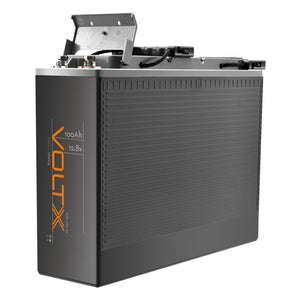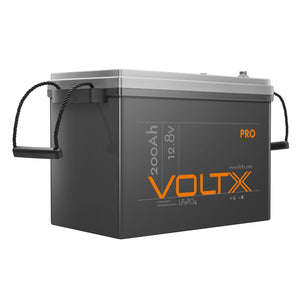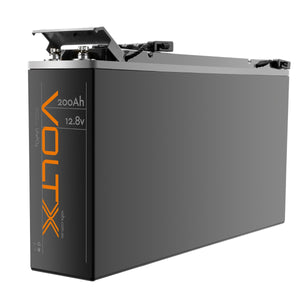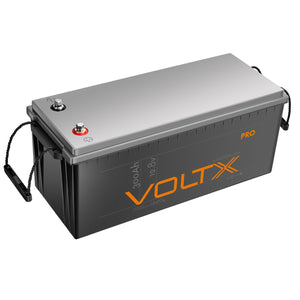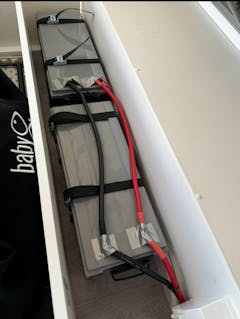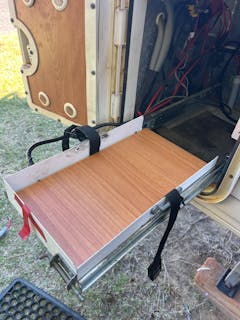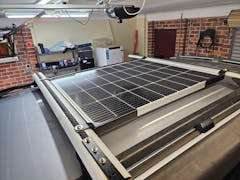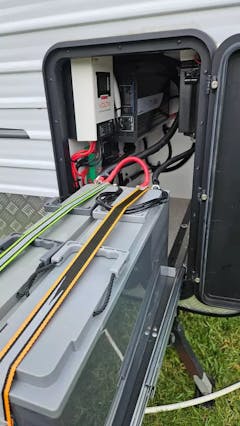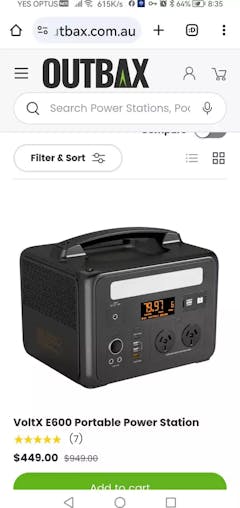Your Essential Guide to Battery Backup Power in 2025
In an era where unpredictable weather events and the allure of off-grid adventures are reshaping how we think about power, having a reliable battery backup system has evolved from a nice-to-have to an absolute essential. Whether you're planning your next remote camping expedition, outfitting your caravan for extended touring, or simply wanting peace of mind during the next power outage, the right power solution can make all the difference. As more Australians embrace experiential travel and self-reliance, understanding how to choose and implement the perfect battery backup for your specific needs becomes crucial. This comprehensive guide will walk you through selecting the ideal power solution for your home, caravan, or campsite, ensuring you're never caught without power when you need it most in 2025 and beyond.
How to Choose the Right Size Battery Backup
Understanding battery capacity starts with grasping what Amp Hours (Ah) really mean – think of it as the fuel tank for your electrical power, where higher Ah ratings equate to longer runtime and more devices you can power simultaneously. For weekend trips and camping adventures, a 100Ah lithium battery provides the perfect balance of portability and performance, capable of running essentials like your portable fridge for 24-48 hours, camp lights throughout the evening, and keeping all your devices charged without breaking a sweat.
The VoltX 12V 100Ah Lithium LiFePO4 Battery exemplifies this versatility, specifically designed for camping enthusiasts who need reliable off-grid power without the bulk. When your power needs extend to longer touring adventures or home backup scenarios, stepping up to 200Ah or 300Ah models becomes essential – the VoltX 12V 200Ah Pro can handle demanding appliances like caravan air conditioners and microwaves, while the VoltX 12V 300Ah Pro provides enough capacity to power critical home systems during extended outages, ensuring your family stays comfortable and connected when the grid fails.
Best Battery Backup Solutions for Home Power Outages
As power outages become increasingly common across Australia due to extreme weather events and grid instability, having a robust battery backup for home power outage situations has transformed from a luxury to a necessity. Modern LiFePO4 battery systems offer a compelling alternative to traditional generators, providing silent, maintenance-free operation without the fumes, fuel storage concerns, or neighbourhood noise complaints that come with petrol-powered alternatives. A quality 200Ah or 300Ah battery backup for the home can seamlessly power essential appliances, including your refrigerator (running 24+ hours), LED lighting throughout your house (100+ hours), internet modem and router (48+ hours), and critical medical devices like CPAP machines indefinitely with proper management.
The VoltX 12V 200Ah Pro, for example, with its impressive 2560Wh capacity and fuss-free operation, exemplifies the modern home battery backup solution. It offers enough power to maintain normal household operations during short to medium-term outages while being simple enough for anyone to operate. When paired with solar panels, these systems create a complete power backup for home solution that not only provides emergency power but can also reduce your reliance on the grid year-round, offering both immediate security and long-term energy independence.
Powering Your Outdoor Adventures and Camping Trips
The freedom to explore Australia's most remote and beautiful locations without sacrificing modern conveniences has revolutionised how we approach camping, fishing, and 4WD touring, with portable battery backup systems becoming as essential as your swag or esky. Modern Outbax 100Ah lithium batteries have transformed outdoor adventures by providing reliable, lightweight power that won't weigh down your setup – the VoltX 12V 100Ah, marketed as "the most suitable battery for camping," weighs just 11kg compared to 30kg+ for equivalent lead-acid batteries, making it easy to transport while still delivering 4000+ charge cycles for years of weekend getaways and extended expeditions.
These camping batteries excel in harsh Australian conditions thanks to their durable ABS plastic cases that resist impacts and vibration, wide operating temperature ranges that handle everything from alpine cold to outback heat, and the ability to discharge to nearly empty without damage, unlike traditional batteries that fail when discharged below 50%. Whether you're powering a 12V fridge to keep the catch of the day fresh, running LED camp lights for evening entertainment, charging cameras and drones to capture memories, or even running a portable coffee machine for that essential morning brew, a quality 100Ah battery ensures your outdoor battery backup needs are met without the noise, fumes, or maintenance hassles of generators.
Why Form Factor Matters: Slim and Blade Battery Options
Not every vehicle, caravan, or boat has the luxury of spacious battery compartments, which is why innovative slim and blade battery designs have become game-changers for space-constrained installations where standard block batteries simply won't fit. Slim batteries like the VoltX 12V 100Ah Slim and VoltX 12V 200Ah Slim feature reduced width profiles that slide perfectly behind ute rear seats, fit into narrow caravan storage cavities, or mount flush against walls where traditional batteries would protrude awkwardly into living spaces.
For even tighter spaces, blade batteries represent the ultimate in space-saving design – the VoltX 12V 100Ah Blade measures just 65mm in height, making it ideal for under-seat mounting in 4WDs, installation in shallow floor compartments of campervans, or stacking in boat bilges where vertical space is at a premium. These specialised form factors don't compromise on performance, delivering the same power output, cycle life, and safety features as their standard counterparts while solving the real-world challenge of fitting serious power capability into vehicles and spaces that weren't originally designed with large battery banks in mind.
The LiFePO4 Advantage for Solar and Safety
LiFePO4 (Lithium Iron Phosphate) technology represents a quantum leap forward from traditional lead-acid batteries, offering a combination of safety, efficiency, and longevity that makes it the undisputed choice for modern battery backup solar systems and mobile power applications. The inherent stability of LiFePO4 chemistry eliminates the fire and explosion risks associated with other lithium technologies, while the integrated Battery Management System (BMS) provides multiple layers of protection against overcharging, over-discharging, short circuits, and temperature extremes – making these batteries safe enough to install inside your home or caravan without ventilation concerns.
When it comes to solar integration, LiFePO4 batteries charge up to five times faster than lead-acid equivalents and accept nearly 100% of the solar energy generated, compared to just 80% efficiency with traditional batteries, meaning your solar panels work harder and deliver more usable power throughout the day. Need more power? Premium power packs like VoltX allow you to connect up to six units in series (for higher voltage) or parallel (for increased capacity) configurations, enabling you to build customised solar battery backup systems that scale from simple weekend camping setups to comprehensive whole-home backup solutions, with each battery maintaining perfect balance thanks to advanced BMS communication between units.
Final Thoughts on Energising Your Lifestyle
Investing in the right battery backup system isn't just about having power when you need it – it's about embracing a lifestyle of freedom, self-sufficiency, and preparedness that empowers you to explore further, stay comfortable during emergencies, and reduce your environmental footprint through efficient energy use. Whether you choose a compact 100Ah solution for weekend adventures, a high-capacity 300Ah system for comprehensive home backup, or a specialised slim design to maximise your caravan's living space, modern LiFePO4 technology delivers the safety, longevity, and efficiency that make these batteries a smart long-term investment rather than just another camping accessory.
As we move through 2025 and beyond, those equipped with quality battery backup solutions will find themselves better positioned to handle whatever challenges come their way – from multi-day power outages to spontaneous off-grid adventures – knowing they have reliable, sustainable power at their fingertips whenever and wherever they need it.
For related articles: Best Battery Backups for Camping Adventures
Frequently Asked Questions
- How many charge cycles can I expect from these batteries?
- Can I connect multiple batteries together?
- What does the C-rating of a battery mean?
- What is the recommended charging voltage for a 12V LiFePO4 battery?
- How long is the warranty on a typical 12V 100Ah lithium battery?
- What is the difference between a slim battery and a standard one?
- Can I use these batteries to create an uninterrupted power supply (UPS) for my home?
- What is the float voltage for these batteries?
- Are these batteries safe to use inside a caravan or home?


